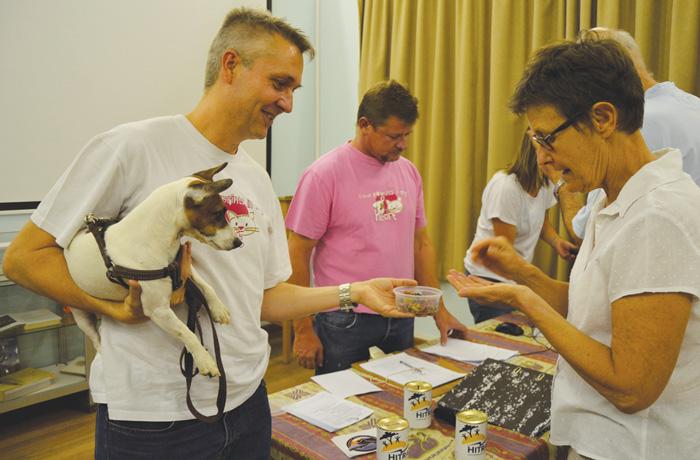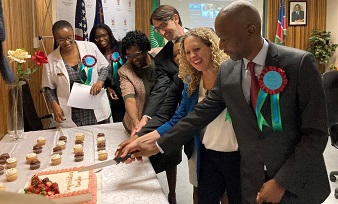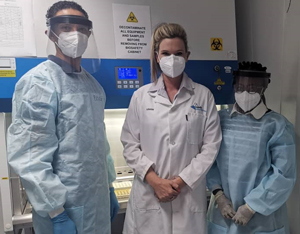
Support for Down syndrome mothers

DSAN posters carry a powerful message to help remove the stigma of down syndrome children.
Most of the directors of the not for profit Section 21 Company look after a child with Down syndrome and that alone requires a lot of time and effort.
“We want to reach out to people with Down syndrome in all the regions of Namibia but we need energetic parents and caretakers to make sure each Parent Support Group stays active in its region, because we cannot always be there with them,” she continued. She thanked the sponsors of DSAN – PWC, Koep & Partners, Omalaeti Technologies, the Diamond Works, BDO, FNB and Engen Namibia – for believing in the work of DSAN.
“With the recent sponsorships we have employed an Education Coordinator who is driving our partnership with the Ministry of Education on the Inclusive Education Policy. We cannot expect that the ministry will look after our children without very close parent involvement and support.” The Inclusive Education Policy opens the door for children with development challenges to become part of the national school system. With extra help, differently-abled children are now in the same class as “normal children”. She said “the ministry is doing its best, but inclusion will not happen overnight and parents should become actively involved.” “It is a known fact that “normal children” become better citizens for life once they interact with differently-abled children. At the same time, children with special needs will learn social and academic skills from the other kids in the class.
This will go a long way in creating a more accepting and tolerant society. Inclusion is the way forward”, she emphasised. “At DSAN we want Namibians to start seeing the person behind the Down syndrome. It is so easy to focus on the syndrome and not the person. Our children are individuals with their own ideas, dreams, plans and emotions. It is very important to show the faces of persons with Down syndrome – really, our children are all different.” Dr van der Linden added that this notion is also what inspired DSAN when making the poster. “Parents should feel free to take their children to public places – to the park, to the shopping mall, church, a restaurant – and not have the fear to be stared at or even be treated badly.” “No matter the challenges, we will never stop trying to make Namibia a better place for people with Down syndrome and to make sure they can reach the best of their ability,” she said. In 2015 DSAN will focus on helping parents to get their children with Down syndrome into conventional schools and vocational training centres. DSAN encourages parents to be actively involved and help the school and teachers to realize the inclusive education approach. “Our work on advocacy and energizing Parent Support Groups around Namibia is an ongoing activity.”
You can reach the Down Syndrome Association of Namibia on 081-6760605 (Ester) or [email protected]. You can learn more about the organization on the website: http://downsyndromenamibia.org or on Facebook..













































